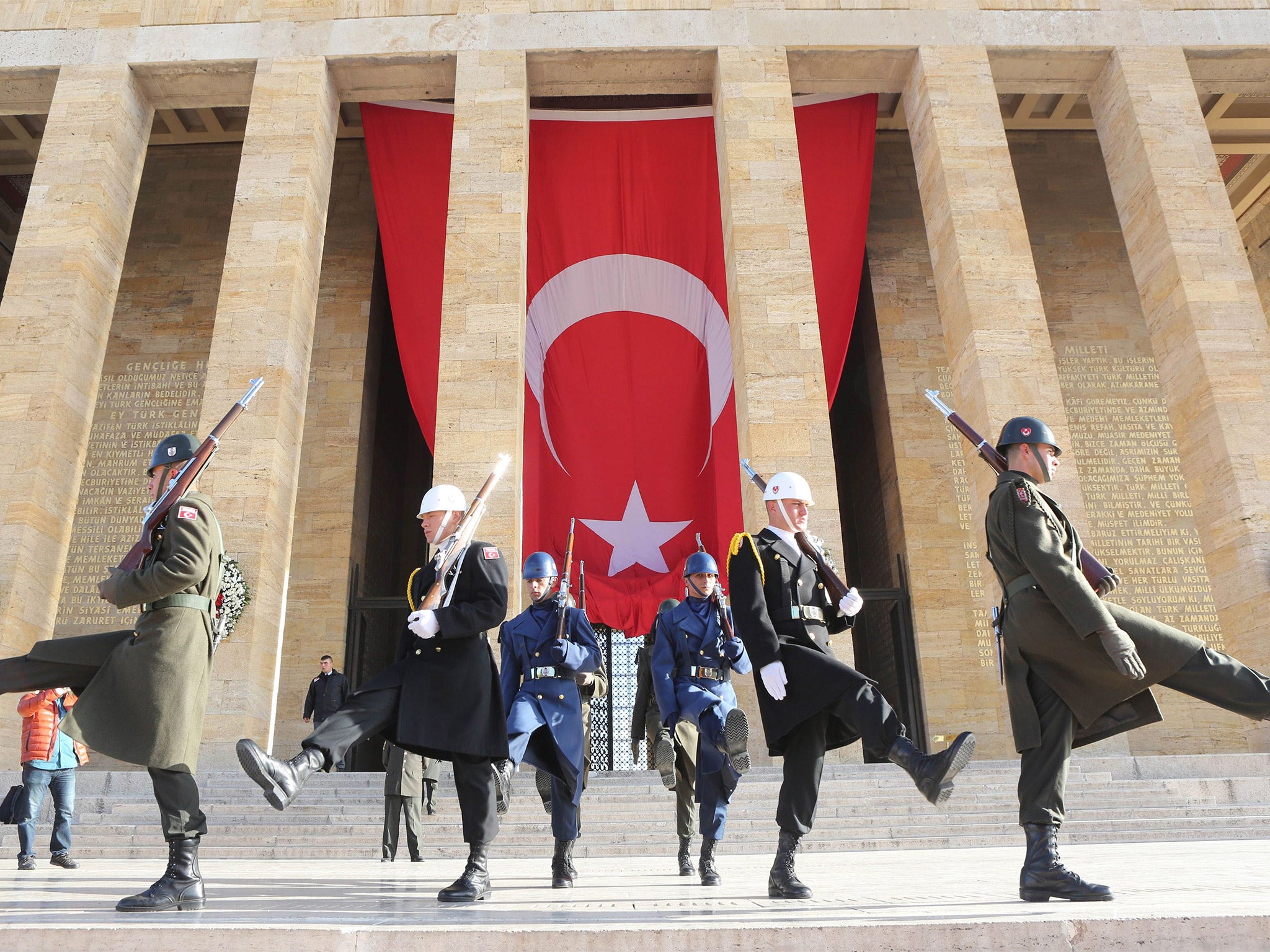Refugee crisis: EU report on Turkey's membership contains muted criticism as it seeks nation’s co-operation with influx
Publication was delayed so as not to influence the country's recent election, but it is hard to see why since its language was so restrained as to suggest that the main intent of its authors was not to give offence to the Turkish government

Your support helps us to tell the story
From reproductive rights to climate change to Big Tech, The Independent is on the ground when the story is developing. Whether it's investigating the financials of Elon Musk's pro-Trump PAC or producing our latest documentary, 'The A Word', which shines a light on the American women fighting for reproductive rights, we know how important it is to parse out the facts from the messaging.
At such a critical moment in US history, we need reporters on the ground. Your donation allows us to keep sending journalists to speak to both sides of the story.
The Independent is trusted by Americans across the entire political spectrum. And unlike many other quality news outlets, we choose not to lock Americans out of our reporting and analysis with paywalls. We believe quality journalism should be available to everyone, paid for by those who can afford it.
Your support makes all the difference.The European Union has published its delayed annual report on Turkish membership of the bloc, urging Turkey to resume talks with the Kurds, limit restrictions on the media and respect human rights.
Its publication was delayed by the EU so as not to influence the Turkish elections, but it is hard to see why, since its language was so restrained as to suggest that the main intent of its authors was not to give offence to the Turkish government.
While negotiations for Turkey to enter the EU have been dead in the water for years, ensuring that the EU has little influence over its behaviour, the need for Turkish co-operation has grown this year because there are some 2.2 million Syrian refugees in the country, many of whom are now making their way to the EU via Greece and the Balkan states.
The EU wants Turkey to absorb more refugees itself, in return for making it easier for Turks to get EU visas, along with financial aid and speeded up talks on EU membership. German Chancellor Angela Merkel attracted criticism from the Turkish opposition just before election when she visited Istanbul and held talks with President Recep Tayyip Erdogan, during which she said there could be no solution to the migration crisis without Turkey.
The EU report “emphasises an overall negative trend in the respect for the rule of law and fundamental rights”. There are also significant shortcomings affecting the judiciary and freedom of expression.
This is one way of describing the near total domination of television and press coverage by the ruling Justice and Development Party (AKP) which helped it win a majority in the general election on 1 November. But any criticism of its domestic policies by the EU is unlikely to be taken seriously by the Turkish government. Punches are pulled throughout. The report says that “the independence of the judiciary and the principle of separation of powers has been undermined since 2014 and prosecutors have been under strong political pressure”.
In practice, the courts do what the government tells them to do and the AKP has progressively seized control of all levers of power such as the judiciary, army and media since it first came to power in 2002.
The EU draws attention to the fact that over the past year “Turkey saw a severe deterioration in its security situation”. This followed suicide bombings by Isis at Suruc on 20 July and in Ankara on 10 October that together killed 134 people. The government used the first of these attacks as the occasion to relaunch a war against the Kurdistan Workers Party (PKK). The greater violence and insecurity enabled the AKP to present itself successfully to voters as a guarantor of stability and as the party of Turkish nationalism.
Join our commenting forum
Join thought-provoking conversations, follow other Independent readers and see their replies
Comments